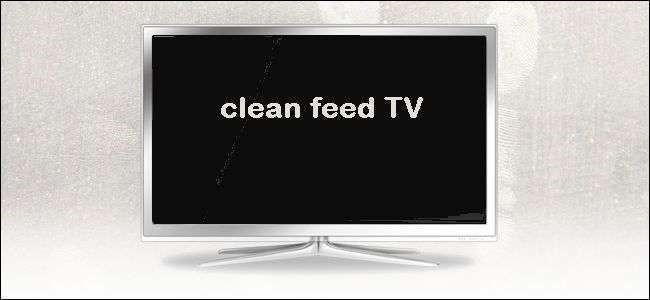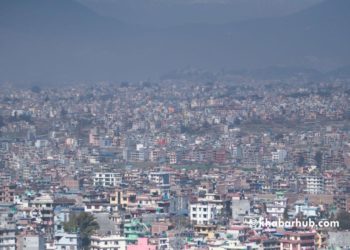Understanding the background
There are around 200 foreign TV channels broadcasting programs through a delinking process in Nepal. Cable TV operators screen both ‘pay channels’ and ‘free-to-air’ channels on Nepali television sets. Most of these foreign channels are telecast from India. So, foreign TV channels in Nepal are more or less Indian channels. The ‘free-to-air channels’, as the norms go, telecast their contents along with ‘air advertisements’ in between displaying various foreign brands of goods and services to Nepali viewers. These advertisements promote the sale of foreign goods and services, mostly Indian ones, in Nepal without imposing ‘charges’.
Nepali TV viewers pay DTH (Direct-to-Home satellite television service) providers a fixed monthly charge. They watch a range of TV programs including news and views beamed from India and other countries. Along with these programs, Nepali TV viewers are also exposed to foreign commercials (advertisements for selling goods and services). Multinationals and international conglomerates get easy access to Nepali consumers as they are the viewers of their commercials. In the process, domestic advertising industry in Nepal is shrinking and the multinational companies do not advertise their products on domestic channels of Nepal because viewership is relatively less. Moreover, the domestic advertising agencies do not get prime slots to air Nepali commercials on domestic channels. Nepali TV channels are forced to produce poor contents as there is no money coming their way. Nepali language, culture and traditions will die down if these Indian Channels along with their advertisements are allowed all free without regulating and controlling them, Government proposes in his policy as it tables the bill in the National Assembly. Cable and DTH operators get a lucrative business opportunity when they procure a license to beam foreign channels in Nepal. As they pay millions of Rupees to operate the foreign channels in Nepal, the Nepal government wants all that money to stay in Nepal by drying up all the income that Cable and DTH operators in Nepal are getting right now.
What is Clean Feed Policy?
On July 22, 2016, a Cabinet meeting passed ‘clean feed policy’. The National Mass Communication Policy, 2018 has incorporated a clear provision referring to clean feed policy. Now, the policy is all set to be implemented since the beginning of the fiscal year 2076 BS (2019/20). Now, there is a law in the hand of the Nepal government to strictly govern foreign ads and foreign channels beaming in Nepal across all the five provinces in each and every house. It is not just the domestic TV channels, the print and online media will also fall within the ambit of ‘Clean Feed Policy’. If strictly implemented, all the foreign channels will get closed as per the provisions coded in the proposed law. All the Indian advertisements often touted as anti-Nepali in culture by the present Government will be removed only to be replaced with purely Nepali borne advertisements promoting specific Nepali national culture. It will expand the domestic advertising industry and help Nepali domestic TV channels earn more revenue.
‘Clean feed policy’ must not be confused with ‘advertising and free air policy’. The Clean feed policy says that TV broadcasts (programs) must reach the viewers without any advertisements (commercials). In case of ‘advertising and free air policy’, commercials can be shown during the telecasts. Subscription charges under clean feed policy are always more than those under advertising policy. Free air policy requires no such payment. Nepal will no longer opt for channels under advertising policy leave aside free air policy. The basic thrust of clean feed policy is that foreign advertisements must not reach the Nepalese people. If at all foreign channels want to broadcast advertisements in Nepal, they should come here and make advertisements in the Nepali language in a local setting showing typical Nepali culture by using local media and resources. This provision would generate revenue in Nepal and create employment in domestic economy. All the stakeholders will be benefited by this policy: artists, publication houses, recording studios, and the people and of course not to leave the Government of Nepal.
Who is opposing Clean Feed and Why?
Cable operators in Nepal and Indian Broadcasting Foundation are opposing the clean feed policy. They argue that broadcasting TV programs without advertisements is so boring to watch for the viewers. It is like eating the food without adding salt and spices to it. Moreover, there is a chance to lose huge business base already created in Nepal and flight of money (foreign investment — mostly Indian investment) from Nepal with no future prospect of coming back again for decades and so. The policy may turn out to be ‘disastrous’ when it comes to inviting more foreign investment in Nepal.
Sudhir Parajuli, president of the Federation of Cable TV Association of Nepal, argues that, ‘Implementation of Clean Feed Policy will force consumers to pay more than what they are doing now. It is so because foreign broadcasters would require to set up separate facilities for scissoring foreign commercials and relaying the channels to Nepal. This will add up more costs which will ultimately fall on consumers. Further, the government compels us to stop broadcasting the foreign channels because of higher costs and that will step up the sales of set-top boxes of Indian operators. And pirated contents will flood the Nepal’s market thereby throwing Nepali channels out of business.’ The Nepal government must understand that the costs of down-linking (broadcasting) foreign channels free of adverts is much higher than the existing rate as the channels would have to bear extra cost to suite or trim it to specific demands of the Nepal government for aligning with what is called Nepali culture to serve Nepali viewers. Is not the Government of Nepal acting as a ‘cultural watch-dog’ — what to see or what not to see by hammering in what exactly should be Nepali culture in the 21st century of globally interconnected world where distance is shrinking in ICT (Information and Communication Technology)? It has triggered national debate with a lot of diplomatic heat bound to have both political repercussions as well as impact on our domestic economy.









Comment